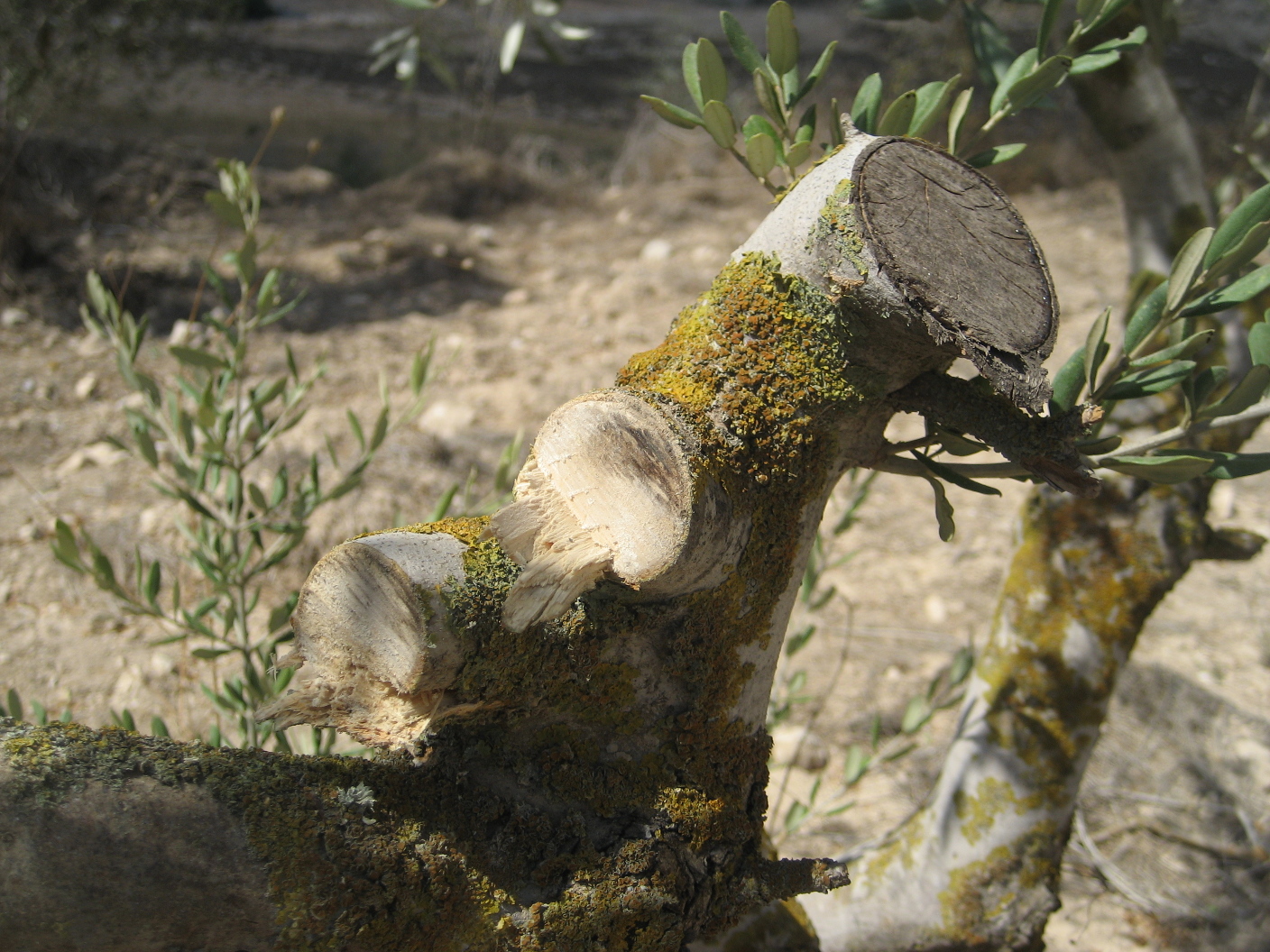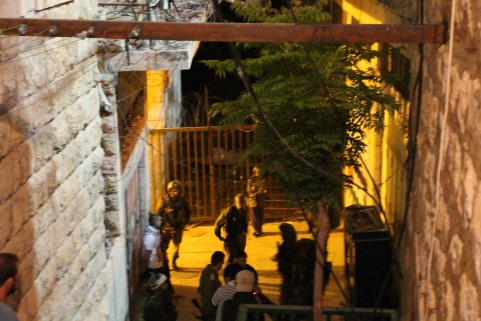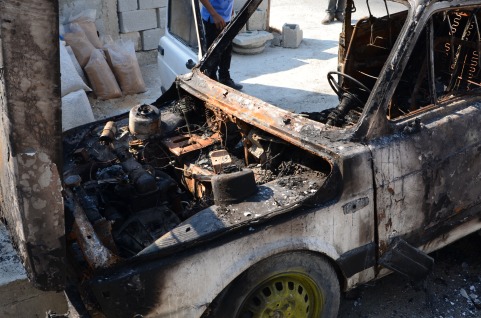Tag: Settlers
-
Settlers steal olives from 110+ trees in Abu Huwar
7th of October | International Solidarity Movement, Team Nablus | Deir Sharaf, Occupied Palestine On the 5th of October, local farmers discovered that the olives from more than one hundred trees had been stolen, and that another ten trees had been damaged or destroyed. Abu Huwar farm, belonging to Yasser Fuqaha, Sidqi Fukaha, Mustafa Fuqaha…
-
Palestinian man and his 3-year-old niece assaulted by Israeli soldiers
3rd October 2013 | International Solidarity Movement, Khalil Team | Hebron, Occupied Palestine On Tuesday 2nd October local Khalil shop owner Abed Sider and his 3-year-old niece were hospitalised after being assaulted by several soldiers. On the day of his birthday at 6:30pm, Abed had his home invaded by five Israeli soldiers who had come to…
-
Cars burnt by settlers in Huwwara
2nd October 2013 | International Solidarity Movement, Nablus Team | Huwwara, Occupied Palestine In the early hours of 1st October settlers from the settlement of Bracha set fire to two cars parked outside the house of Edrees Shehadeh in Huwwara. This attack forms part of a sustained campaign of intimidation against the village, which includes…



